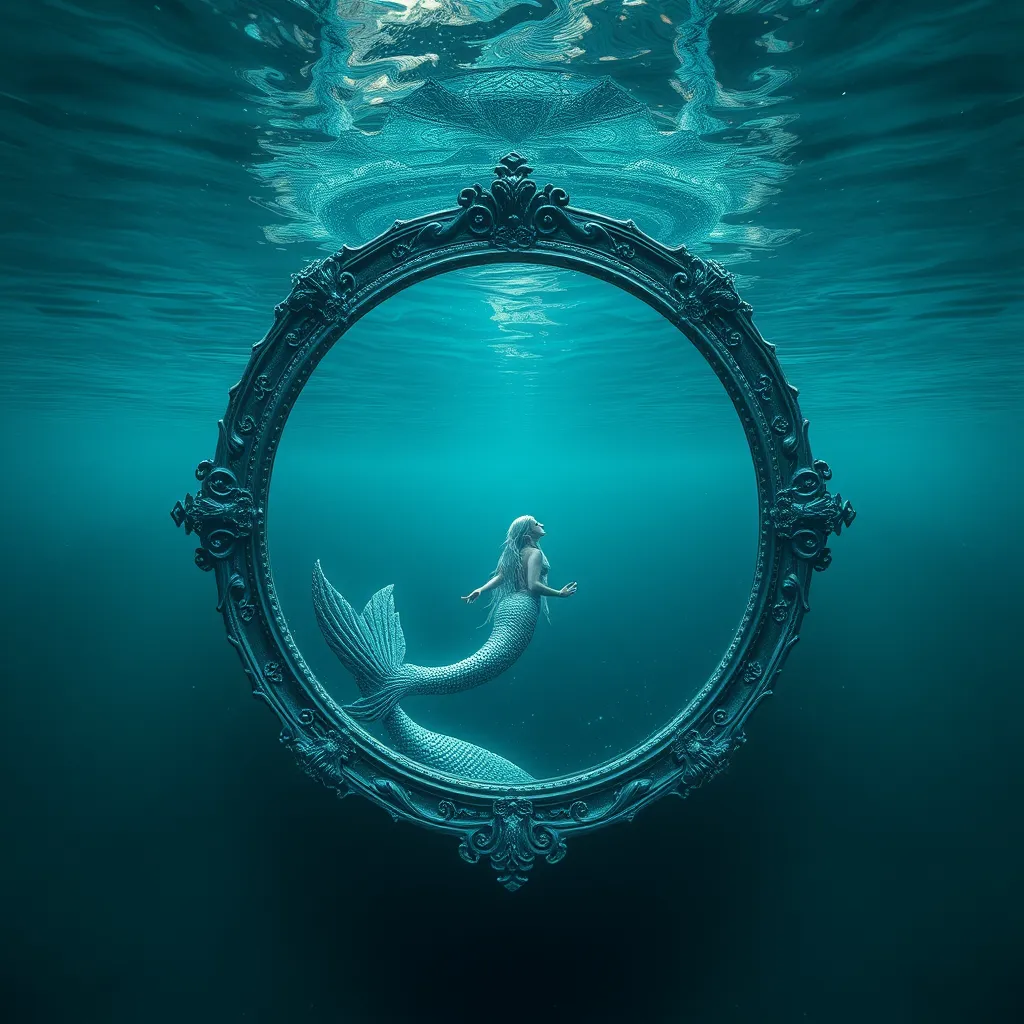The Mermaid’s Mirror: Reflecting on the Psychology of Aquatic Mythologies
I. Introduction
Aquatic mythologies encompass a broad range of legends and stories that feature water-related beings, particularly those that dwell beneath the surface. These mythologies hold significant cultural importance, offering insights into the values, fears, and aspirations of the societies that create them.
Among these aquatic beings, mermaids stand out as captivating figures in folklore and literature. Often depicted as beautiful half-women, half-fish, mermaids have been the subject of countless tales, ranging from enchanting romances to cautionary stories about the dangers of the sea.
This article aims to explore the psychological themes behind aquatic myths, particularly focusing on mermaids, examining how these tales reflect deeper human emotions and societal issues.
II. The Origins of Mermaid Myths
Mermaid legends have their roots in various historical and cultural contexts. These stories can be traced back to ancient civilizations where the sea was both revered and feared. The origins of mermaid myths vary significantly across cultures:
- In ancient Assyria, the goddess Atargatis transformed herself into a fish, giving rise to early mermaid-like figures.
- In European folklore, mermaids often appeared as omens, luring sailors to their doom with their enchanting voices.
- In African and Caribbean cultures, similar aquatic beings exist, such as the Mami Wata, who embodies both beauty and danger.
The maritime culture of these societies heavily influenced the formation of myths surrounding mermaids. The vast, unpredictable ocean served as a backdrop for tales that reflected human curiosity, fear, and the quest for understanding the unknown.
Over time, the mermaid archetype evolved in storytelling, adapting to the changing social and cultural landscapes, ultimately becoming symbols of both desire and danger.
III. Psychological Symbolism of Water
Water is a powerful symbol in psychology, often representing the unconscious mind. It embodies the depths of human emotions, thoughts, and desires. The dual nature of water—its capacity to sustain life and its potential for destruction—mirrors the complexities of human experience.
In aquatic myths, mermaids serve as reflections of psychological struggles and desires:
- They represent the allure of the unknown, drawing individuals into deeper self-exploration.
- They can symbolize the conflict between personal desires and societal constraints.
- Mermaids often embody the tension between beauty and danger, reflecting the complexities of attraction in human relationships.
IV. The Mermaid Archetype: Feminine Identity and Empowerment
As symbols of feminine beauty and allure, mermaids hold a unique place in cultural narratives. They often represent an idealized form of femininity, captivating and enchanting those around them.
However, this allure is juxtaposed with a tension between independence and societal expectations. Mermaids are often depicted as free spirits, yet they are also constrained by the expectations of the world above the water. This duality highlights the struggle many women face in navigating their identities.
Case studies of prominent mermaid characters illustrate these themes:
- The Little Mermaid, in Hans Christian Andersen’s tale, sacrifices her voice for love, symbolizing the pain of losing one’s identity for acceptance.
- In Disney’s adaptation, Ariel embodies youthful rebellion and the desire for freedom, challenging traditional gender roles.
- In contemporary literature, mermaid characters often reclaim their narratives, embracing empowerment and agency.
V. The Role of Transformation in Aquatic Myths
Transformation is a central theme in many aquatic myths, particularly the metamorphosis from human to mermaid. This process can be seen as a powerful psychological concept, representing self-discovery and personal growth.
The journey from human to mermaid often signifies a deeper exploration of one’s identity:
- It reflects the desire to break free from societal constraints and embrace one’s true self.
- The metamorphosis can symbolize the acceptance of one’s inner complexities and contradictions.
- Transformation often leads to an awakening, enabling characters to reclaim their power and agency.
Through these narratives, aquatic myths emphasize the significance of transformation in the journey of personal growth and identity formation.
VI. The Allure of the Unknown: Fear and Fascination
The ocean serves as a potent metaphor for the unknown, representing both fear and fascination. The psychological impact of the ocean reflects humanity’s ambivalence towards exploration and discovery.
Mermaids, as figures that straddle the line between enchantment and threat, embody this complexity:
- They are often depicted as enchanting beings, luring individuals into the depths of the sea with their beauty.
- At the same time, their association with danger serves as a reminder of the risks involved in venturing into the unknown.
- This duality fosters a balance between attraction and fear, illustrating the complexities of human desire.
VII. Contemporary Interpretations of Mermaid Myths
In recent years, modern adaptations of mermaid myths have emerged, resonating with contemporary audiences. These interpretations often carry significant psychological implications:
- They explore themes of identity, empowerment, and self-acceptance, reflecting shifts in societal norms regarding femininity.
- The rise of mermaids in popular culture, particularly through social media, has redefined their narratives, allowing for greater diversity in representation.
- Contemporary stories often challenge traditional tropes, presenting mermaids as complex individuals rather than one-dimensional figures.
These modern narratives reshape traditional themes, inviting audiences to engage with the psychological depth of aquatic myths in new and meaningful ways.
VIII. Conclusion
In summary, the exploration of mermaid myths reveals rich psychological insights that resonate with human experience. These aquatic tales reflect our struggles, desires, and the complexities of identity. They serve as mirrors through which we can examine our own lives, relationships, and societal expectations.
Mermaids continue to hold enduring relevance in understanding human nature, reminding us of the power of myth in psychological exploration. As we navigate the depths of our own unconscious, the stories of mermaids will always beckon us to explore the unknown, embrace transformation, and seek empowerment.



